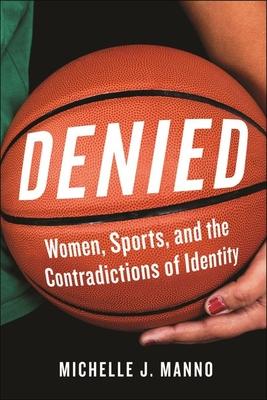A courtside view of how women athletes' identities are policed, on and off the court
Women's college basketball is big business-top teams bring in millions of dollars in revenue for their schools. Women's NCAA games are broadcast regularly on sports networks, and many of the top players and coaches are household names. Yet these athletes face immense pressure to be more than successful at their sport. They must also conform to expectations about gender, sexuality, and race-expectations that are often in direct contrast to success in the game. They are not supposed to have muscles that are too big, they are not supposed to be too tough, they are not supposed to be too masculine or "look like men," and they are not supposed to be queer. A former college athlete herself, Michelle J. Manno spent a full season with a highly competitive NCAA Division I women's basketball program as one of the team's managers. In vivid detail, she takes us on the court, on the team bus, into the locker room, and to championship games to show the intense dedication that these women give to the game. She found, perhaps unsurprisingly, that these extremely talented women were strictly policed around the presentation of their gender and sexuality, especially the athletes who were Black. They were routinely monitored, banned from engaging in certain activities, and often punished for behavior that put their queerness, Blackness, and masculinity on display. Convincingly conforming to conventional expectations of gender and sexuality-from the clothes they wore to the people they dated-was yet another challenge at which they needed to excel. Importantly, Manno also highlights several well-known contemporary professional athletes-Brittney Griner, Serena Williams, Gabby Douglas, and Caster Semenya, among others-to show that fame and performing at the highest levels in sport does not protect women athletes from having to navigate the conflicting and often contradictory expectations of identity. A riveting portrait of an elite basketball program, Denied will forever change our understanding of women athletes and the sports they play.
Book
Denied: Women, Sports, and the Contradictions of Identity
(Write a Review)
$98.89
A courtside view of how women athletes' identities are policed, on and off the court
Women's college basketball is big business-top teams bring in millions of dollars in revenue for their schools. Women's NCAA games are broadcast regularly on sports networks, and many of the top players and coaches are household names. Yet these athletes face immense pressure to be more than successful at their sport. They must also conform to expectations about gender, sexuality, and race-expectations that are often in direct contrast to success in the game. They are not supposed to have muscles that are too big, they are not supposed to be too tough, they are not supposed to be too masculine or "look like men," and they are not supposed to be queer. A former college athlete herself, Michelle J. Manno spent a full season with a highly competitive NCAA Division I women's basketball program as one of the team's managers. In vivid detail, she takes us on the court, on the team bus, into the locker room, and to championship games to show the intense dedication that these women give to the game. She found, perhaps unsurprisingly, that these extremely talented women were strictly policed around the presentation of their gender and sexuality, especially the athletes who were Black. They were routinely monitored, banned from engaging in certain activities, and often punished for behavior that put their queerness, Blackness, and masculinity on display. Convincingly conforming to conventional expectations of gender and sexuality-from the clothes they wore to the people they dated-was yet another challenge at which they needed to excel. Importantly, Manno also highlights several well-known contemporary professional athletes-Brittney Griner, Serena Williams, Gabby Douglas, and Caster Semenya, among others-to show that fame and performing at the highest levels in sport does not protect women athletes from having to navigate the conflicting and often contradictory expectations of identity. A riveting portrait of an elite basketball program, Denied will forever change our understanding of women athletes and the sports they play.Hardcover
$98.89